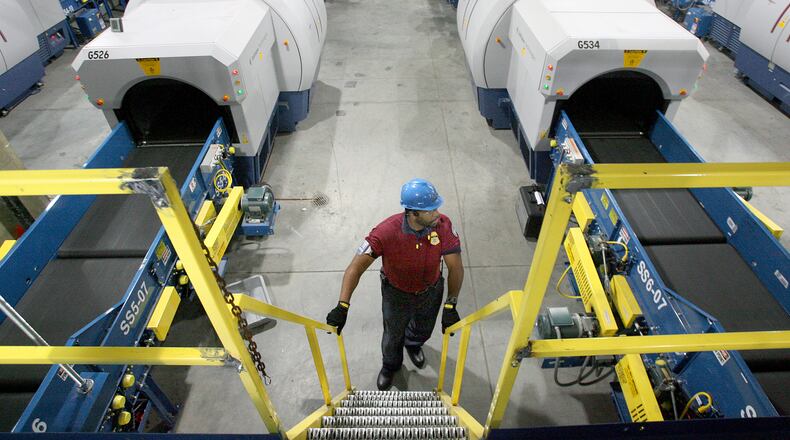The city of Atlanta prevailed in a dispute over minority contracting for a baggage screening system at Hartsfield-Jackson, and is moving forward with awarding the contract to the company it picked.
Vanderlande Industries appealed the city's decision on a nearly $40 million contract to design and build baggage system conveyors and install new explosives detection machines to screen checked bags in the bowels of the world's busiest airport.
The dispute prompted a hearing before a contract compliance hearing officer, with Vanderlande and the city each presenting arguments.
Vanderlande, based in the Netherlands, submitted the low bid of $38.3 million but fell far short of the city’s goal for minority partners. The city instead selected Jervis B. Webb Co., part of Japanese baggage handling giant Daifuku Co, which bid about $39.9 million.
Vanderlande officials say they made a good faith effort to find minority contractors, but that the highly-specialized work made it difficult to meet the goal of 15 percent representation.
The hearing officer upheld the city's decision to deem Vanderlande's bid non-responsive for not fulfilling the good faith effort requirements.
"Vanderlande not only failed, but failed miserably in showing its good faith efforts to meet Contract Compliance's DBE [disadvantaged business enterprise] requirements," hearing officer Clarence Johnson wrote in his ruling.
Vanderlande during the hearing had raised the possibility of further legal action.
After the hearing, the hearing officer received a letter from an attorney "who had not been previously involved with this protest appeal," according to his ruling.
The Atlanta City Council transportation committee on Wednesday voted in favor of a resolution to award the contract to Jervis B. Webb, and the item now goes to the full council for a vote Monday.
MORE:
About the Author
Keep Reading
The Latest
Featured




